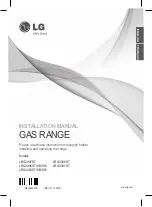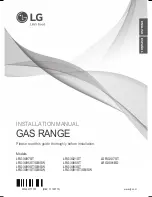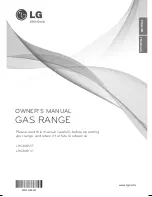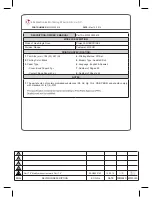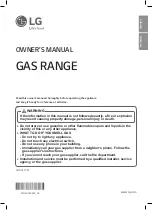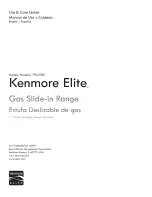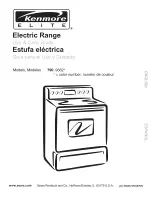
11
SURFACE COOKWARE TIPS
Types of Cookware
The following information will help you choose
cookware which will give good performance.
Stainless Steel: highly recommended
Especially good with a sandwich clad bottom. The
sandwich bottom combines the benefits of stainless
steel (appearance, durability and stability) with the
advantages of aluminum or copper (heat conduction,
even heat distribution).
Aluminum: heavy weight recommended
Good conductivity. Aluminum residues sometimes
appear as scratches on the cooktop, but can be removed
if cleaned immediately. Because of its low melting
point, thin weight aluminum should not be used.
Cast Iron: usable, but not recommended
Poor performance. May scratch the surface.
Copper Bottom:
Good performance, but copper may leave residues
which can appear as scratches. The residues can be
removed, as long as the cooktop is cleaned
immediately. However, do not let these pots boil dry.
Overheated metal can bond to glass cooktops.
An overheated copper pot will leave a residue that
will permanently stain the cooktop.
Porcelain/enamel:
Good performance only with a thick, flat, smooth
bottom. Avoid boiling dry, as porcelain can melt and
fuse to the surface.
Glass-ceramic: usable, but not recommended
Poor performance. May scratch the surface.
Stoneware: usable, but not recommended
Poor performance. May scratch the surface.
Surface Contr
ols
Surface Cookwar
e T
ips
• Place only dry pans on the
surface units. Do not place
lids on the surface units,
particularly wet lids.
• We recommend that you use
only a flat-bottomed wok.
They are available at your
local retail store. The bottom
of the wok should have the same diameter
as the surface unit to insure proper contact.
• Do not use woks that have
support rings. This type of
wok will not heat on glass
cooktops.
• Some special cooking procedures require specific
cookware such as pressure cookers, deep fat fryers,
etc. All cookware must have flat bottoms and be the
correct size.
(continued next page)





























